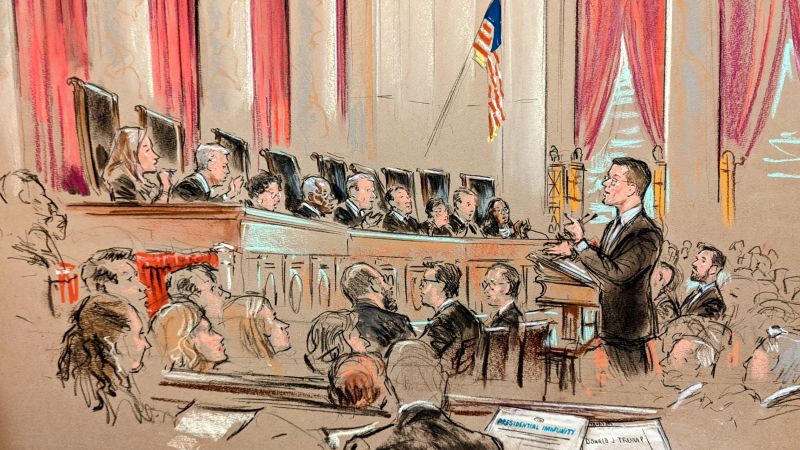
5 things to know for April 26: Trump trials, University protests, Harvey Weinstein, TikTok ban, Starliner
CNN
CNN’s 5 Things brings you the news you need to know every morning.
A multi-day storm threat is set to impact millions of people in the central US through the weekend. Forecasts show parts of Texas, Missouri and Iowa are in the direct pathway of multiple rounds of severe thunderstorms. Here’s what else you need to know to Get Up to Speed and On with Your Day. The Supreme Court appears ready to reject former President Donald Trump’s claims that he should receive immunity for alleged crimes he committed during his presidency to reverse the 2020 election results. The high court also signaled during oral arguments Thursday that his trial could be delayed until after the November election. This creates the possibility that Trump could be reelected before a trial and make the blockbuster election subversion case go away. The arguments came as Trump is facing a trial in New York for the hush money criminal case. Court will resume today after prosecutors on Thursday wrapped up their testimony with Former American Media Inc. chairman David Pecker, who described in detail how he worked with Trump and his allies to buy up damaging stories about Trump throughout the 2016 campaign. US protests over the humanitarian crisis in Gaza are growing in number and intensity, most notably on college campuses. At New York’s Columbia University, where protests began last week, the faculty senate is expected to vote today on a resolution admonishing the school’s president, Minouche Shafik, over several of her decisions. Shafik has faced criticism for authorizing police to shut down student protests on campus. On the West Coast, the University of Southern California on Thursday canceled its main commencement ceremony next month, citing “new safety measures in place.” Nearly 100 people have been arrested on the campus as numerous other institutions report clashes between protesters and police. The New York appeals court on Thursday overturned the sex crimes conviction against Harvey Weinstein, the powerful Hollywood producer whose downfall stood as a symbol of the #MeToo movement. The court ordered a new trial, stating that the use of “prior bad acts” witnesses should not have been allowed. The ruling sent shockwaves through communities of sexual assault survivors, particularly the more than 100 women who have accused Weinstein of assault and harassment. Weinstein, 72, was convicted in 2020 of first-degree criminal sexual act and third-degree rape, and he was sentenced to 23 years in prison. He has maintained his innocence and denied any nonconsensual sexual activity. TikTok’s Chinese parent company ByteDance said Thursday that it has no plans to sell the social media platform, its first official response on the fraught issue since President Joe Biden signed a bill that could lead to a nationwide ban of the popular app. “ByteDance doesn’t have any plan to sell TikTok,” the Beijing-based company said in a statement. Lawmakers have warned that TikTok is a national security threat, and the legislation signed by Biden this week forces the company to find a new owner within months or be banned from the US entirely. Complicating matters, there is no consensus on a favorite bidder even if the company were to consider a sale. Experts say the prospect of a TikTok sale could lead to a feeding frenzy, drawing out everyone from tech companies to retailers and private equity firms.





















 Run 3 Space | Play Space Running Game
Run 3 Space | Play Space Running Game Traffic Jam 3D | Online Racing Game
Traffic Jam 3D | Online Racing Game Duck Hunt | Play Old Classic Game
Duck Hunt | Play Old Classic Game











